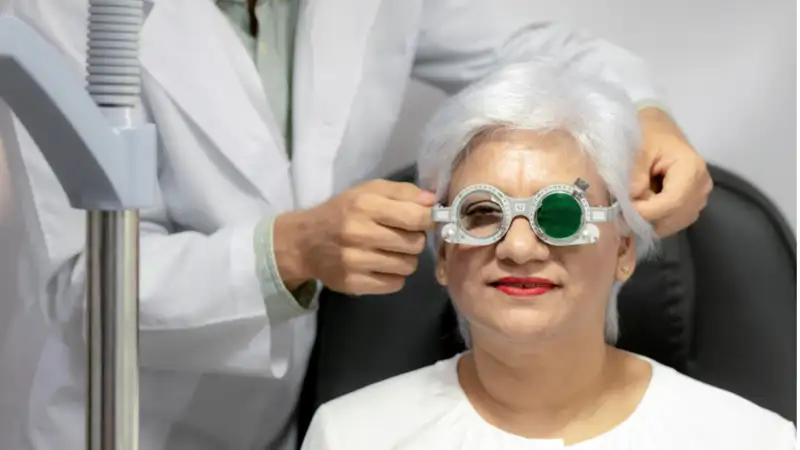Have you ever considered how much your vision affects your ability to think clearly and stay focused? For seniors, changes in eyesight can do more than make reading harder-they can also impact memory, attention, and problem-solving. Poor vision can limit activities, reduce social interaction, and lead to mental decline over time.
This article explains how vision health is connected to cognitive function in seniors. It also offers practical steps to protect eye health, helping maintain mental sharpness and quality of life.
How Vision and Brain Health Are Connected
Vision is one of the brain’s primary sources of information. When eyesight declines, the brain must work harder to interpret visual input, which can cause mental fatigue. Over time, this extra strain can affect concentration and memory.
Untreated vision problems can also lead to reduced social engagement, which may contribute to cognitive decline. Protecting eye health supports both independence and mental performance.
Common Eye Conditions That Affect Cognition
Several age-related eye conditions can contribute to cognitive challenges. Cataracts, macular degeneration, and glaucoma are among the most common issues. These conditions can reduce visual clarity, making it harder to engage in daily activities.
Some conditions may also cause discomfort, such as a cataract-related headache in seniors. Addressing these issues early through medical care can improve both comfort and mental well-being.
The Role of Regular Eye Exams
Routine eye exams are essential for early detection of vision problems. They allow healthcare providers to identify changes before they interfere with daily life. Annual checkups can also ensure that corrective lenses are up to date.
Early treatment of vision problems can make a significant difference in maintaining cognitive function. Staying proactive about eye health helps preserve both vision and mental sharpness.
How Vision Problems Influence Daily Activities
When vision declines, everyday tasks such as reading, driving, or cooking can become more difficult. This can lead to reduced activity levels, which may contribute to cognitive decline. Staying active and engaged is important for maintaining brain health.
Proper treatment and vision aids can help seniors remain independent. This support encourages continued participation in social and mental activities.
Lifestyle Habits to Support Vision and Cognition
Healthy habits can protect both vision and brain function. Eating a nutrient-rich diet with leafy greens, omega-3 fatty acids, and antioxidant-rich foods can reduce the risk of eye disease. Regular exercise improves blood flow, benefiting both the eyes and the brain.
Other helpful habits include wearing sunglasses, managing chronic conditions, and avoiding smoking. These small lifestyle changes can have long-term benefits for cognitive function.
Clear Vision and Clear Mind
Good vision is more than just seeing well-it’s a key part of staying mentally sharp. By taking care of eye health, seniors can protect memory, attention, and overall quality of life. Regular exams and healthy habits make a lasting difference.
Making vision care a priority today builds a stronger foundation for tomorrow. With the right attention and support, seniors can keep both their sight and their minds clear for years to come.
Did you learn something new from this article? If so, be sure to check out our blog for more educational content. Site.
